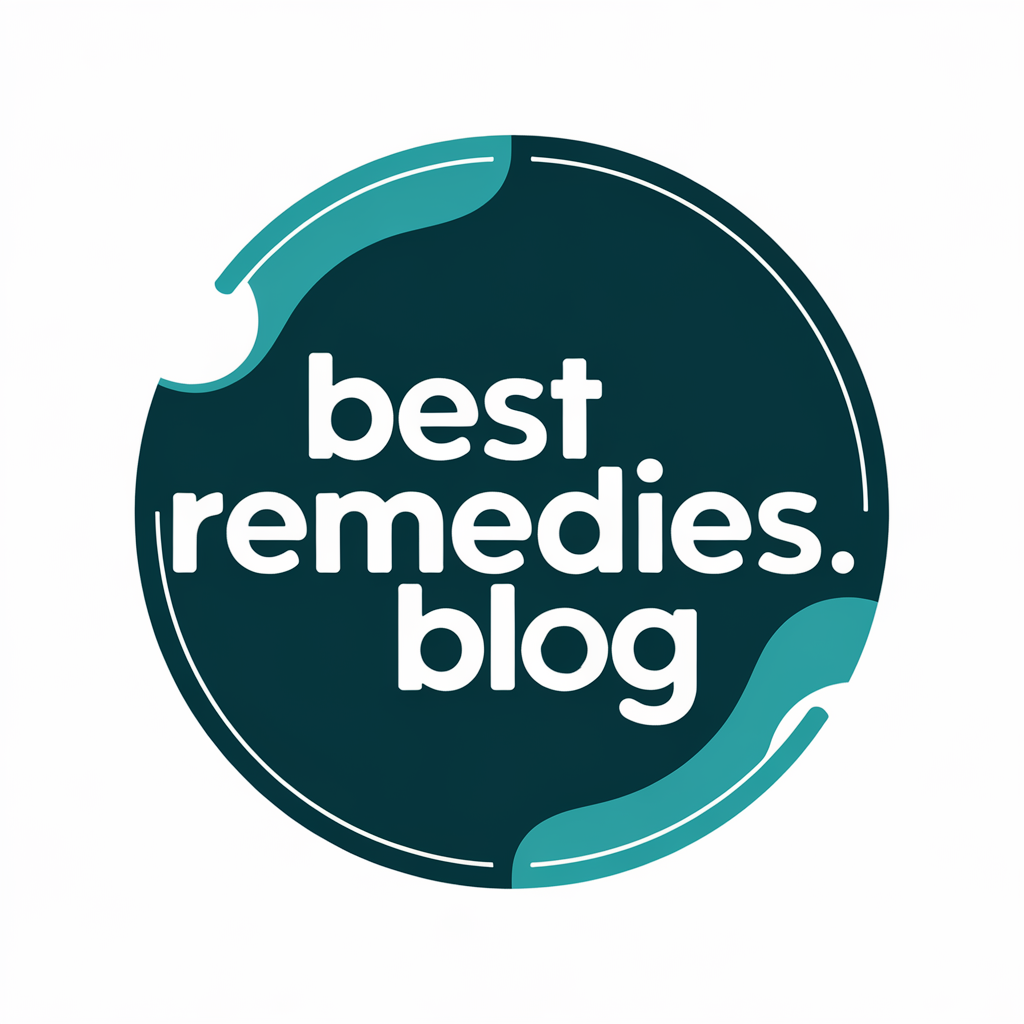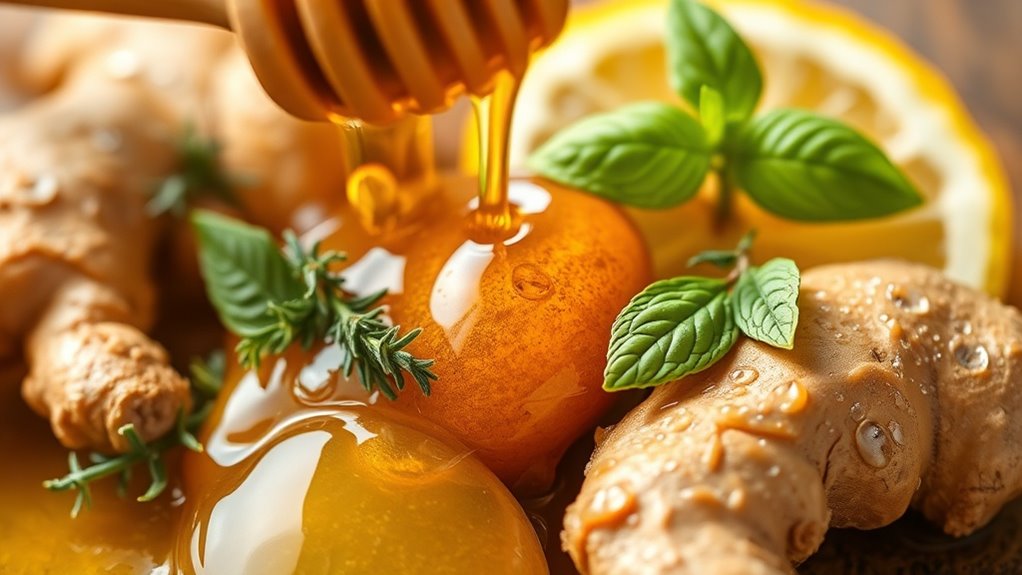Always use caution to avoid burns, ensuring safe, evidence-based symptom management.
Drinking Herbal Infusions
You can enhance your cold relief by drinking herbal infusions, which provide evidence-based benefits like reducing inflammation and easing congestion.
These teas, such as those made from echinacea or peppermint, have been shown in studies to support immune function and symptom alleviation.
For enhanced effects, try adding fresh ginger to your herbal infusions for warmth and throat soothing.
Now, we’ll cover the simple steps to prepare them safely at home.
Herbal Tea Benefits
Herbal teas deliver soothing relief for cold symptoms by harnessing natural compounds in herbs like chamomile and peppermint.
You’ll experience chamomile’s anti-inflammatory effects, which ease sore throats and promote restful sleep, essential for recovery.
Peppermint clears congestion and suppresses coughs through its menthol properties, as supported by studies on herbal antivirals.
These teas hydrate you effectively, soothing your respiratory tract and boosting immune function with antioxidants.
Research shows regular intake can shorten symptom duration, offering a natural, evidence-based alternative that enhances your body’s resilience without side effects.
Embrace this approach for gentle, effective support.
Infusion Preparation Steps
Following the benefits of herbal teas, you’ll prepare infusions by boiling water, adding a teaspoon of dried herbs per cup, and steeping for 5-10 minutes to extract active compounds effectively.
After steeping, strain the mixture to remove particles, ensuring a clear, potent brew.
Cover the cup during infusion to preserve volatile oils, as research supports this for optimal extraction.
Choose herbs like peppermint or elderberry, backed by studies for their anti-inflammatory effects on cold symptoms.
Use filtered water for purity, and experiment cautiously—consult a professional if needed—to maintain safety and efficacy in your routine.
Incorporating Essential Oils
While cold symptoms can be challenging, incorporating essential oils provides a natural, evidence-based approach to relief.
You can diffuse eucalyptus oil to ease congestion, as research indicates it reduces inflammation in airways.
For headaches, apply diluted peppermint oil topically; studies confirm its cooling effect alleviates pain.
Always dilute oils and perform a patch test to avoid irritation.
Tea tree oil’s antimicrobial properties may help soothe sore throats when used in steam inhalation.
Consult a professional before use, especially if you’re pregnant or have health conditions, ensuring safe, effective integration into your routine.
Additionally, for further relief from inflammation, consider ginger tea as a complementary natural remedy.
Eating Nutrient-Dense Foods
Beyond essential oils, you fuel your body’s fight against cold symptoms by eating nutrient-dense foods, which supply vital vitamins and minerals to strengthen immunity.
Focus on fruits like oranges and berries for vitamin C, which research indicates shortens cold duration.





